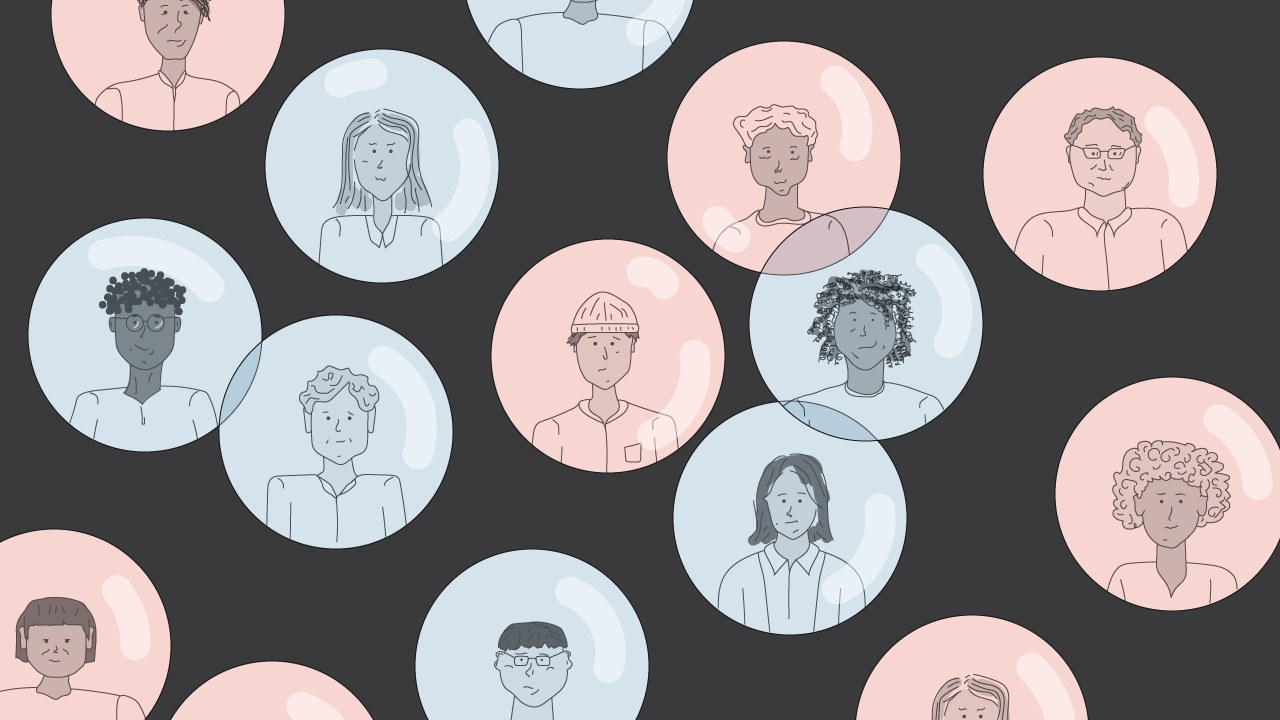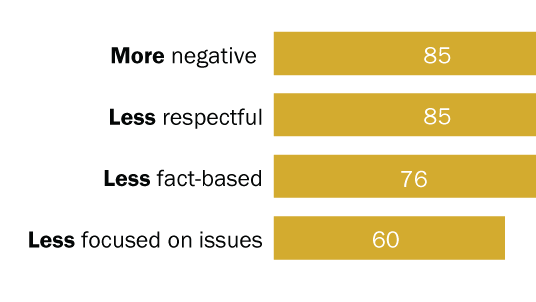
Voters Say Those on the Other Side 'Don't Get' Them. Here's What They Want Them to Know.
Biden and Trump supporters tell us in their own words about America’s political divisions
Signature Reports
Biden and Trump supporters tell us in their own words about America’s political divisions
Majorities of Americans say the tone of political debate in the country has become more negative, less respectful, less fact-based and less substantive in recent years.
Seven-in-ten Americans say elected officials should avoid heated or aggressive language because it could encourage some people to take violent action.
Untethered from partisan politics and uninterested in keeping up with political news, here is how some Americans view the current state of U.S. politics.
Americans’ views of politics and elected officials are unrelentingly negative, with little hope of improvement on the horizon. 65% of Americans say they always or often feel exhausted when thinking about politics. By contrast, just 10% say they always or often feel hopeful about politics.
74% of Republicans say social media has been more of a bad thing for U.S. democracy, compared with a smaller majority of Democrats (57%).
Most think social media has made it easier to manipulate and divide people, but they also say it informs and raises awareness.
People in advanced and emerging economies have mixed feelings about social media’s impact on political life.
One-in-five federal, state and local candidate tweets in 2022 have mentioned race, abortion, education or the economy.
In recent years, several new options have emerged in the social media universe, many of which explicitly present themselves as alternatives to more established social media platforms. Free speech ideals and heated political themes prevail on these sites, which draw praise from their users and skepticism from other Americans.
55% of journalists surveyed say that every side does not always deserve equal coverage in the news. 22% of Americans overall say the same.
61% of U.S. adults say they have heard at least a fair amount about the phrase “cancel culture,” up from 44% in September 2020.










